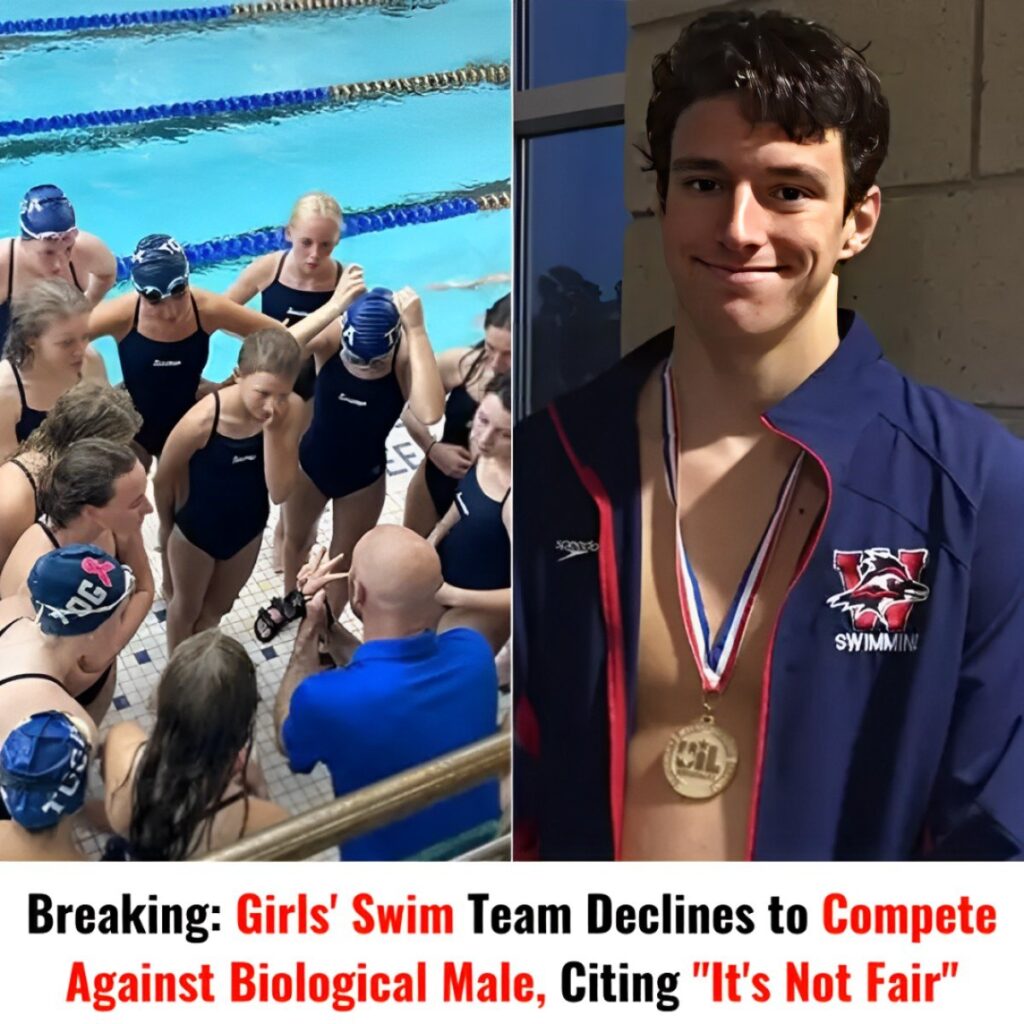
Breaking: Girls’ Swim Team Declines to Compete Against Biological Male, Citing “It’s Not Fair”
In a groundbreaking and controversial move, a high school girls’ swim team has officially announced they will not compete against a biological male swimmer in an upcoming competition. The team members cited concerns over fairness in the sport, arguing that the presence of a male swimmer competing against them gives an unfair advantage. The decision has sparked heated debate among athletes, parents, coaches, and lawmakers across the nation.
The Situation
The controversy arose when a male swimmer, who identifies as female, was allowed to compete in a state-level swim meet against the girls’ team. According to reports, the swimmer has been breaking records in the women’s category, leading many of the girls on the team to voice their concerns. In a statement, the team explained their stance:
“It’s not fair. We’ve worked hard for years to achieve success in this sport, and it’s disheartening to see someone who has a biological advantage competing against us.”
The team’s refusal to compete has generated strong reactions from both sides of the debate. While some see the girls’ decision as a bold stand for fairness in women’s sports, others view it as discriminatory against transgender athletes.

Supporters of the girls’ swim team argue that biological males, even those undergoing hormone therapy, still retain advantages in strength, speed, and endurance, which can give them an edge over female competitors. They believe that allowing transgender women to compete in female categories undermines the integrity of women’s sports.
One parent of a swimmer said:
“We want equality, but that doesn’t mean it’s fair to put our girls up against someone who has an inherent physical advantage.”
On the other hand, advocates for transgender inclusion in sports argue that transgender women should be allowed to compete in women’s categories, especially if they are following the necessary hormone treatments. They stress that inclusion is vital for equal rights and for fostering an environment of respect and acceptance.
Legal and Political Implications
The situation has sparked political and legal debates as well. Several states have introduced legislation either allowing or banning transgender athletes from competing in categories that match their gender identity. This ongoing legal battle has made its way into courtrooms, with advocates on both sides of the issue vying for a resolution that will satisfy all parties involved.
Some lawmakers have expressed their support for the swim team’s decision, calling it an important step in protecting women’s sports. Others, however, have criticized the team’s stance, warning that such actions could lead to further division in the sports community.
This incident highlights the growing tension between fair competition and inclusivity in sports. As more transgender athletes seek to compete in their gender-affirmed categories, the debate over fairness and inclusion will only intensify. Some sports organizations, including the NCAA and various state athletic associations, have started to implement guidelines aimed at creating a level playing field, but those measures have yet to satisfy everyone involved.
As for the girls’ swim team, their decision has put them at the center of a national conversation about gender, fairness, and the future of women’s athletics. The outcome of this case could set a precedent for how similar situations are handled in the future, influencing how schools, sports organizations, and governments approach the complex issue of transgender athletes in competitive sports.
The debate is far from over, and the eyes of the nation will remain on the evolving policies and the implications they hold for both transgender athletes and their competitors.





